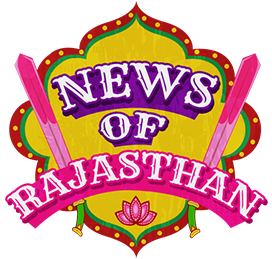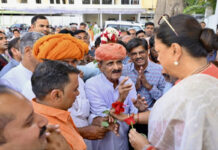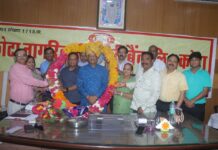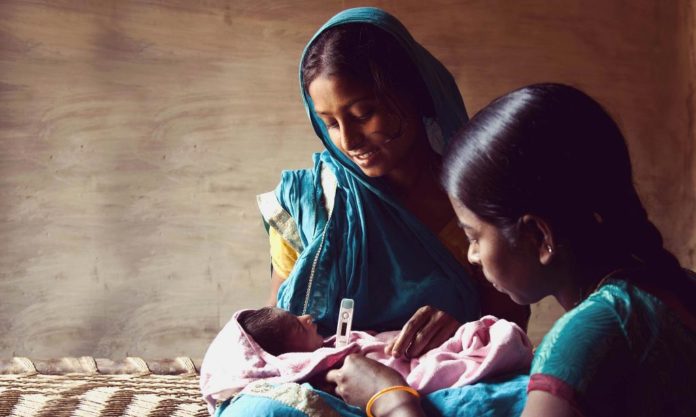
Mother’s milk – the sweet nectar of life is nature’s perfect food, which provides nutrients and good health to infants. Doctors advise mothers to nurse their young ones to build up a strong immune system for them. The unexpected number of infant deaths took a toll on Rajasthan doctors. Poor immunity and deficiency were prime reasons behind high infant mortality rate in Rajasthan.
Consequently, Rajasthan health department introduced the idea of mother milk bank in Bundi, Tonk, Baran and other districts. They borrowed the idea from a trust-operated milk bank in Udaipur. Mothers, who fail to produce milk due to any reason, can arrange fresh mother’s milk for their little ones.
Soon, Rajasthan developed the biggest human milk bank in India—all thanks to wonderful women who’ve participated in this drive. 3,500 mothers donated their breast milk to 11 milk banks in Rajasthan. The state scripted yet another success story, by transporting 600 units of preserved mother milk from Bhilwara to Ajmer via green corridor. Rajasthan police made arrangements for this transfer in the green corridor.
Mother Milk Facts Revealed: Why is it Important for Infants?
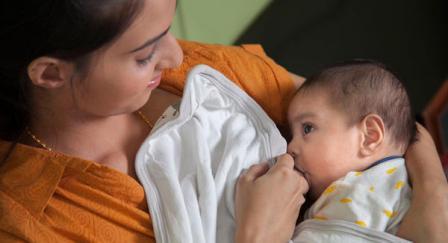
- Breast milk contains 3-5% fat, up to 7% carbohydrates (lactose), <1% proteins and 0.2% minerals. Around 100 ml of milk yields up to 75 k cal energy. It’s quite nutritive!
- Mother’s milk contains IgA (immunoglobin type A) that induces innate immunity (disease fighting capacity) in infants.
- According to ‘Sample Registration Survey 2012’, the average neonatal mortality rate in India is 29 deaths per 1000 live births. The neonatal death rate in Rajasthan is above average that is 35/1000.
- 22% deaths occur due to pneumonia and diarrhea or some form of deficiency. It can be prevented by feeding kids with mother’s milk.
- 16 out of every 100 newborns struggling for their lives in ICUs (Intensive Care Units) can be saved if fed on mother’s milk.
- Research shows that breast milk speeds up the child’s recovery rate by 40%
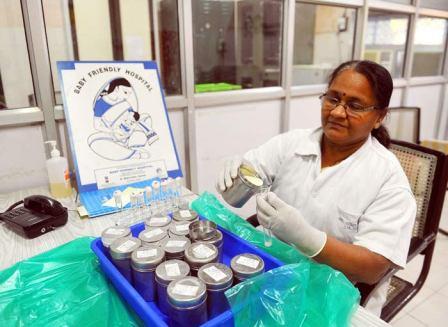
Not having a personal milk bank, Ajmer’s ‘Zanana hospital’ was in dire need of mother milk for infants in the hospital. High temperatures and rough terrain made it difficult to transport milk to Ajmer. The hospital had storage facility for milk bottles, but transportation of milk on road seemed like a Herculean challenge. Irrespective of these difficulties the department arranged a GPS enabled van with freeze chamber (having temperature below minus 20 degrees). The van carried milk samples from Bhilwara to Ajmer, over a distance of 140 kilometers.
Rajasthan Police did a commendable job at making this journey quick and smooth for van drivers. Three police vans moving ahead of truck cleared traffic jam on Ajmer-Bhilwara highway and toll plazas. As a result, 18 liters of mother milk was transported to Zanana Hospital in just two hours. The cost of maintaining the units were borne by the RMRS (Rajasthan Medical Relief Society), inaugurated just yesterday.
If the doctors are to be believed, human milk can be preserved for 72 hours to 15 days at temperatures less than -20 degree Celsius. Bhilwara milk bank, which could store just 600 units of milk, collected over 1,503 milk samples. The extra units were quickly transported to other districts—a process monitored by Bhilwara district collector Mr. Anandilal Vaishnav himself.
Newborns admitted in Ajmer ICU were immediately given 60 ml of milk. Now that it’s possible to transport mother’s milk by road, the authorities will try to open as many storage and transport units as possible. This way, a larger section of child population could be benefited from artificial milk collection and transport.
